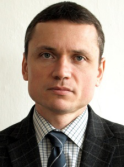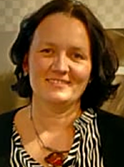Effect of the glass-crystalline bond microstructure on the cutting ability of grinding wheels with Al2O3 abrasive grains
Abstract
Standard ceramic abrasive tools are manufactured using glass bonds or mineral resources, in which the microstructure of the bonding bridges cannot be controlled. In this study, a new type of glass-crystalline bond was used to combine mixed abrasive grains from microcrystalline and monocrystalline corundum into an abrasive tool. The glass-crystalline bond has a fine crystalline structure (particle size of the crystalline phase: 1-1.5 µm) and perfectly moistens the abrasive grains. This fact and the generated crystalline phase with a high coefficient of brittle fracture resistance enable the production of tools with a higher porosity and self-sharpening ability in comparison to grinding wheels with the use of industrial bond, which results in high performance indices with a longer service life.
Downloads
Copyright (c) 2019 Daniela Herman, Krzysztof Nadolny, Elżbieta Socha, Dawid Ścibiorski

This work is licensed under a Creative Commons Attribution 4.0 International License.
Authors retain full copyright to their individual works.
The Journal of Mechanical and Energy Engineering (JMEE) publishes fully open access articles.
Open Access benefits:
- High visibility – all articles are made freely available online for everyone worldwide, immediately upon publication.
- Increased visibility and readership.
- Rapid publication.
- All articles are CC BY licensed. The final article can be reused and immediately deposited in any repository.
- Authors retain the copyright to their work.
By publishing with us, you retain the copyright of your work under the terms of a Creative Commons Attribution 4.0 International (CC BY) license.
The CC BY license permits unrestricted use, distribution and reproduction in any medium, provided appropriate credit is given to the original author(s) and the source, a link to the Creative Commons license is included, and it is indicated if any changes were made. This means that you can deposit the final version of your work in any digital repository immediately after publication.
We are committed to providing high-level peer review, author and production services, so you can trust in the quality and reliability of the work that we publish.






